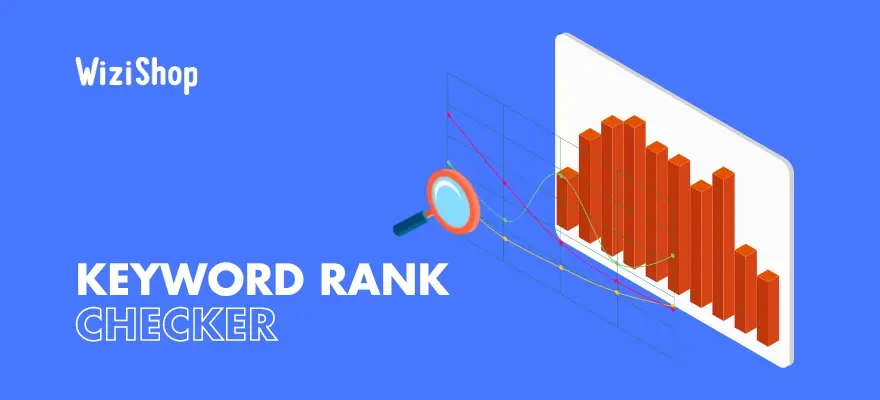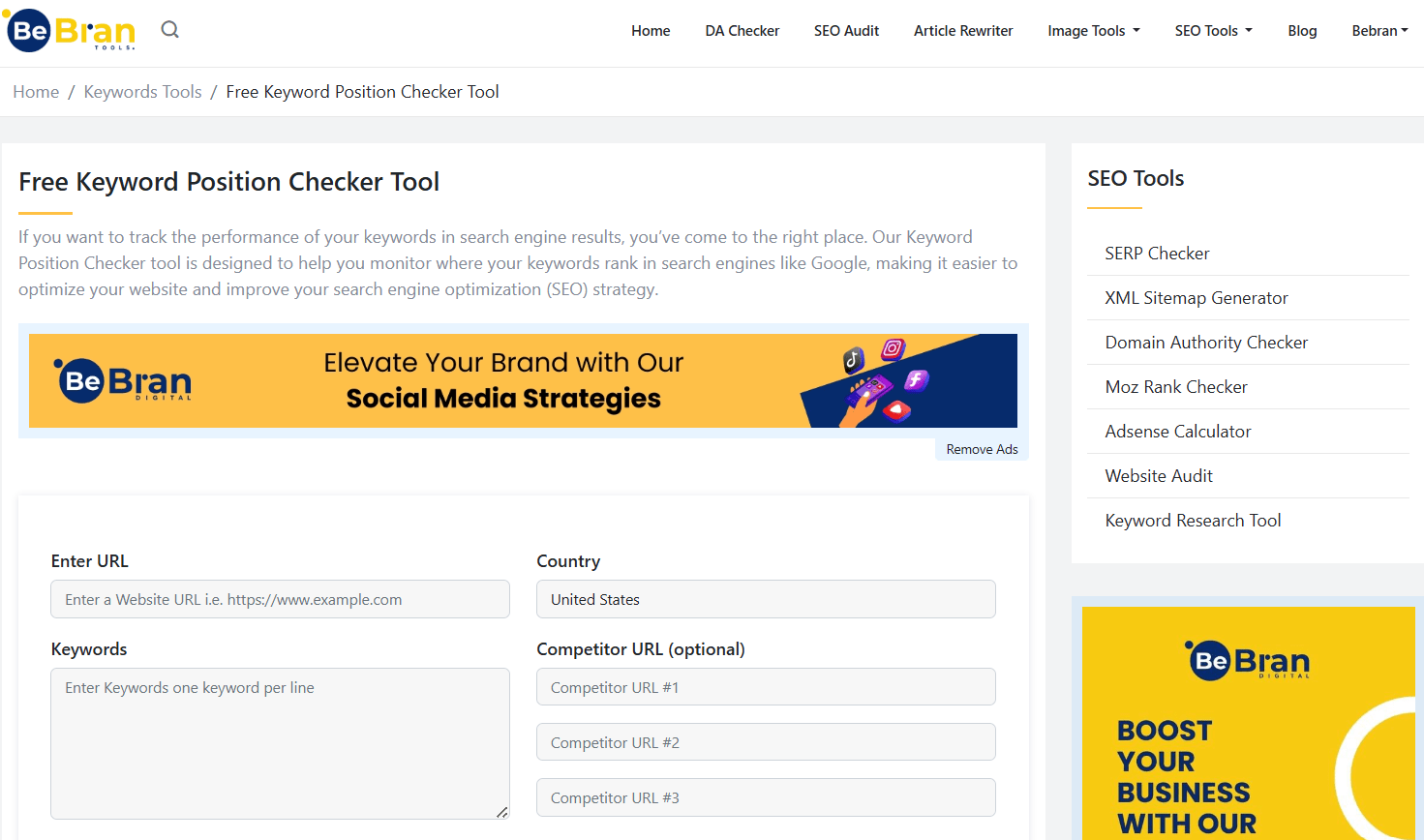
Free vs Paid Position Checker Tools: Which One is Better?
When it comes to tracking your online presence, position checker tools are a critical asset. Whether you’re a small business owner, a digital marketer, or a content creator, understanding where your website or content stands online can make all the difference in optimizing your strategies. However, with a plethora of free and paid position checker tools available, the big question remains: Which one is better for your needs?
In this blog, we’ll break down the key differences between free and paid position checker tools, evaluate their pros and cons, and help you decide which option is best for your unique goals and budget.

What Are Position Checker Tools?
Position checker tools allow you to monitor the ranking or visibility of your website, pages, or content across various platforms, search engines, and locations. They help answer essential questions like:
- Where does my website rank for specific keywords?
- How visible is my business to my target audience?
- Am I outperforming my competitors?
These tools are indispensable for anyone looking to optimize their online presence, whether you’re tracking search engine rankings, ad performance, or even visibility on local directories.
The Basics: Free vs Paid Position Checker Tools
Before diving into specifics, let’s clarify what sets free and paid tools apart.
Free Position Checker Tools
- Typically offer basic features with no cost involved.
- Often have usage limitations (e.g., fewer keywords or reports).
- Designed for beginners or businesses with limited budgets.
- Examples: BeBran’s Free Keyword Position Checker Tool, Google Search Console.
Paid Position Checker Tools
- Provide advanced features and in-depth analysis.
- Offer more comprehensive data, including historical trends and competitor insights.
- Cater to professionals, agencies, or businesses with higher demands.
- Examples: SEMrush, Ahrefs, Moz Pro.
Pros and Cons of Free Position Checker Tools
Pros
- Cost-Effective: Perfect for individuals or small businesses with tight budgets.
- Easy to Use: Simplified interfaces make them beginner-friendly.
- Quick Access: Most free tools are web-based, requiring no downloads or installations.
- Reliable for Basic Needs: Ideal for checking basic rankings or tracking a few keywords.
Cons
- Limited Features: May lack advanced tools like competitor analysis or location-specific tracking.
- Restricted Usage: Some tools cap the number of keywords, reports, or searches.
- Basic Reporting: Reports are often less detailed compared to paid versions.
Pros and Cons of Paid Position Checker Tools
Pros
- Advanced Features: Include competitor analysis, historical trends, and custom reports.
- Scalability: Designed for agencies or large businesses managing multiple projects.
- Comprehensive Insights: Track rankings across various platforms, devices, and locations.
- Priority Support: Most paid tools offer dedicated customer service for troubleshooting.
Cons
- Cost: Subscription fees can add up, making them less viable for small budgets.
- Complexity: Advanced tools may have a steeper learning curve.
- Overkill for Basic Needs: Not all users need the level of detail that paid tools provide.
Key Features Comparison: Free vs Paid Tools
| Feature | Free Tools | Paid Tools |
|---|---|---|
| Keyword Tracking | Limited | Unlimited or high-volume tracking |
| Competitor Analysis | Usually not available | Advanced competitor insights |
| Reporting | Basic | Customizable and detailed |
| Support | Community forums or basic FAQs | Priority customer support |
| Scalability | Suitable for small-scale operations | Ideal for large-scale projects |
Who Should Use Free Position Checker Tools?
Free tools are perfect for:
- Beginners: If you’re new to tracking rankings or testing SEO strategies, free tools are a great starting point.
- Small Businesses: Businesses with limited budgets can track essential metrics without overspending.
- Individual Creators: Bloggers, freelancers, or content creators can monitor their content’s visibility without additional costs.
- Simple Tasks: Free tools are great for tracking a few keywords or monitoring single projects.
Who Should Invest in Paid Position Checker Tools?
Paid tools are ideal for:
- Agencies: Marketing agencies managing multiple clients and campaigns benefit from comprehensive features.
- Large Businesses: Companies requiring advanced tracking, detailed reporting, and multi-platform data.
- SEO Professionals: Those needing historical trends, competitor insights, or large-scale keyword tracking.
- Growth-Oriented Businesses: If you’re expanding and require more sophisticated analytics, paid tools are a smart investment.
Free Tools: Free Rewrite Article Tool Online | Free Small Text Generator Tool Online | Free Image to Text Converter Tool Online
BeBran’s Free Position Checker Tool: A Reliable Starting Point
At BeBran, we understand that not everyone needs or can afford a paid tool. That’s why our Free Keyword Position Checker Tool is designed to provide reliable, real-time tracking for keywords and visibility without the complications of subscriptions or hidden fees.

Why Choose BeBran?
- Free and Easy: No-cost access to essential features.
- User-Friendly Interface: Perfect for beginners or small businesses.
- Real-Time Results: Quickly track rankings for your keywords.
For users with basic needs or tight budgets, Our tool offers the perfect balance of functionality and simplicity.
Examples of Free vs Paid Tool Usage
Scenario 1: A Small Bakery
- Needs: Tracks local visibility for keywords like “best bakery near me” or “custom cakes in Chicago.”
- Solution: A free tool like Our Position Checker Tool provides sufficient data for local rankings without extra costs.
Scenario 2: A Digital Marketing Agency
- Needs: Manages multiple clients, tracks hundreds of keywords, and requires detailed reporting for analysis and presentations.
- Solution: A paid tool like SEMrush or Ahrefs delivers the scalability and advanced features needed.
How to Decide Between Free and Paid Tools
Here are some factors to consider when choosing the right tool:
- Your Budget: Free tools are excellent for cost-conscious users, while paid tools cater to those with larger budgets.
- Project Size: Small projects benefit from free tools, while large-scale operations require the depth of paid tools.
- Features You Need: Evaluate your goals and match them to the features offered by the tools.
- Long-Term Goals: If you’re planning to grow or scale, consider whether a paid tool might save time and effort in the long run.
Practical Tips for Maximizing Position Checker Tools
- Set Clear Objectives: Define what you need to track—keywords, competitor visibility, or location-specific performance.
- Monitor Regularly: Make it a habit to check your positions to stay informed about changes.
- Combine Tools: Use free tools for quick checks and paid tools for in-depth analysis if your budget allows.
- Evaluate ROI: Periodically assess whether the tool (free or paid) is delivering the value you expect.
Final Thoughts: Which One Is Better?
The choice between free and paid position checker tools depends entirely on your needs, budget, and goals. Free tools, like BeBran’s Free Keyword Position Checker Tool, are excellent for beginners, small businesses, or anyone looking for simplicity and cost-effectiveness. On the other hand, paid tools offer advanced features, scalability, and detailed insights for professionals managing larger projects.
Start with a free tool to test the waters, and as your requirements grow, consider investing in a paid solution. The right tool will help you stay competitive, track your progress, and make smarter decisions to enhance your online visibility.
Explore More: Top 10 Image-to-Text Converter Tools for Effortless Text Extraction | Optimizing Your Online Presence: Image Resizing Tips and Tricks
Frequently Asked Questions
1. What is the difference between free and paid position checker tools?
Free tools offer basic features like checking rankings for a few keywords, while paid tools provide advanced features like detailed analytics, ranking history, and multi-location tracking.
2. Are free position checker tools accurate?
Yes, free tools are accurate for basic checks, but they may have limitations in the number of keywords or frequency of updates compared to paid tools.
3. When should I choose a free position checker tool?
Free tools are great if you’re just starting with SEO or need to track a small number of keywords without spending money.
4. What features do paid position checker tools offer?
Paid tools often include features like daily ranking updates, competitor analysis, multi-device tracking, historical data, and integration with other SEO tools.
5. Can free tools track multiple keywords?
Some free tools allow you to track multiple keywords, but they usually have a limit. Paid tools are better for managing large keyword lists.
6. How often can I check rankings with free tools?
Most free tools let you check rankings manually and may limit how many times you can perform checks in a day or month.
7. Are paid tools worth the cost for small businesses?
Paid tools can be worth it for small businesses if you need in-depth insights and regular updates to improve your SEO. For basic needs, free tools might be enough.
8. Do free tools provide location-based ranking data?
Some free tools offer basic location tracking, but paid tools provide more detailed data for specific regions or cities.
9. Can I use both free and paid tools together?
Yes, many people use free tools for quick checks and paid tools for deeper analysis, combining the strengths of both.
10. Which type of tool is better for beginners?
Free tools are better for beginners because they’re easy to use, provide essential features, and let you learn the basics of SEO without any upfront cost.



